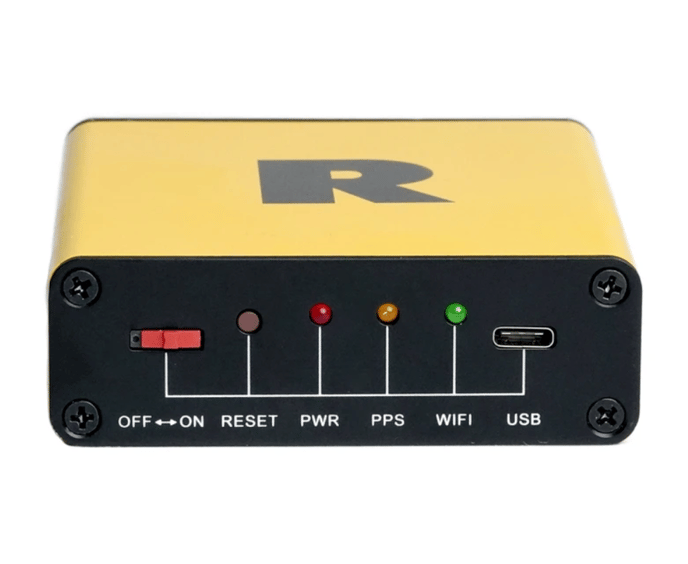What is a CORS (Continuously Operating Reference Station)?
A CORS (Continuously Operating Reference Station) is a GPS or GNSS reference station that provides continuous and permanent real-time positioning information for a specific area.
 CORS stations are typically installed and maintained by government agencies, universities, or other organizations. The datasets collected from a CORS station are used for a variety of purposes, including surveying, mapping, geodetic research, and providing high-precision positioning information for other GNSS receivers in the area. Through the ROCK Network, we're building our own CORS network through the installation of ROCK Base stations around the world.
CORS stations are typically installed and maintained by government agencies, universities, or other organizations. The datasets collected from a CORS station are used for a variety of purposes, including surveying, mapping, geodetic research, and providing high-precision positioning information for other GNSS receivers in the area. Through the ROCK Network, we're building our own CORS network through the installation of ROCK Base stations around the world.
Operation
CORS stations are designed to operate continuously, 24 hours a day, seven days a week, providing real-time GNSS information to users. The GNSS data collected by the CORS station is processed and transmitted to users via the internet, allowing them to access high-precision positioning information from anywhere, at any time.
Accuracy
CORS stations provide high-precision GNSS information, with accuracy levels typically in the range of millimeters to centimeters. This level of accuracy is much higher than what can be achieved with most consumer-grade GNSS receivers and is achieved through the use of high-quality GNSS receivers, antennas, and processing algorithms.
Application
CORS stations are used in a wide range of applications, including land surveying, construction, engineering, and mapping. The high-precision GNSS information provided by CORS stations can be used to create detailed maps, survey land, and support autonomous vehicles, among other applications.
Networking
CORS networks, made up of multiple CORS stations, are used to provide even more comprehensive GNSS coverage and higher accuracy. By combining the data from multiple CORS stations, GNSS receivers can receive information from a greater number of satellites, and the data can be combined to achieve even higher levels of accuracy and reliability.
Accessibility
CORS station data is typically made available to users through a web-based interface, allowing users to access and use the GNSS information easily. Some CORS stations may also allow users to download raw GNSS data, which can be used for additional processing and analysis.
CORS stations are an important component of the GNSS infrastructure, providing high-precision GNSS information for a wide range of applications. With the increasing use of GNSS technology in various fields, the number of CORS stations is expected to continue to take off in the coming years.
Learn about ROCK's GNSS triple-band network base station, ROCK Base, at https://www.rockrobotic.com/rock-base.
![ROCK-robotic-community-logo.png]](https://learn.rockrobotic.com/hs-fs/hubfs/ROCK-robotic-community-logo.png?width=250&height=50&name=ROCK-robotic-community-logo.png)